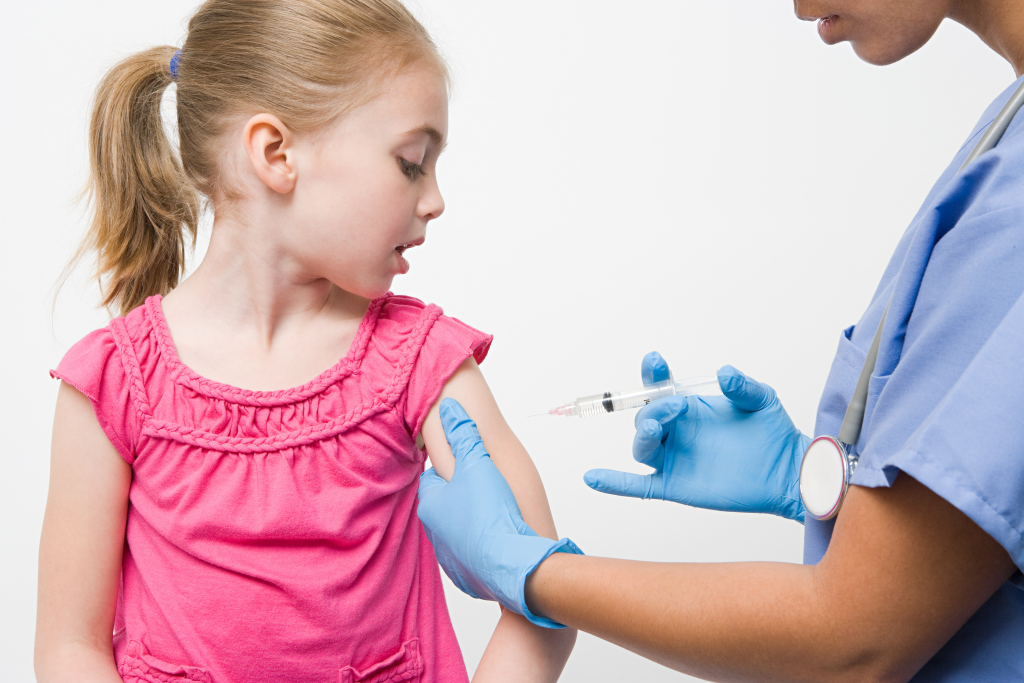
Introduction
Child vaccinations play a crucial role in safeguarding the health and well-being of our little ones. They have been instrumental in preventing the spread of various contagious diseases, saving countless lives, and significantly improving public health. In this article, we will delve into the significance of child vaccinations, their benefits, and address common concerns and misconceptions.
Understanding Child Vaccinations
Child vaccinations, also known as immunizations, involve administering weakened or inactive forms of infectious agents to children. This stimulates their immune systems to produce antibodies, building immunity against the targeted diseases without causing the actual illness. The immune system “remembers” the pathogens, enabling a swift and effective response if the child encounters the actual disease in the future.
The Benefits of Child Vaccinations
1. Disease Prevention
Child vaccinations have been responsible for eradicating or reducing the prevalence of numerous deadly diseases such as measles, polio, and diphtheria. Through widespread immunization, these illnesses are now rare in many parts of the world, sparing children from suffering and potential complications.
2. Herd Immunity
When a significant portion of a community is immunized against a disease, it creates a protective barrier known as herd immunity. This shields those who cannot be vaccinated, such as infants and individuals with compromised immune systems, effectively breaking the chain of infection and preventing outbreaks.
3. Safe and Effective
Extensive research and rigorous testing ensure that vaccines are safe and effective before they are approved for use. The benefits of vaccinations far outweigh the minimal risks associated with them, making them a crucial aspect of public health.
Common Vaccinations for Children
1. Measles, Mumps, and Rubella (MMR) Vaccine
The MMR vaccine is a combination vaccine that protects against measles, mumps, and rubella. These diseases are highly contagious and can lead to severe complications, including brain inflammation and congenital disabilities. Administering the MMR vaccine to children significantly reduces the risk of contracting these illnesses.
2. Diphtheria, Tetanus, and Pertussis (DTaP) Vaccine
The DTaP vaccine provides protection against diphtheria, tetanus, and pertussis (whooping cough). Diphtheria can cause breathing difficulties and heart failure, while tetanus leads to muscle stiffness and painful spasms. Pertussis, especially dangerous for infants, can result in severe coughing fits and respiratory issues. Immunizing children with DTaP helps prevent these diseases from taking hold.
3. Polio Vaccine
Polio is a highly infectious viral disease that can lead to paralysis and even death. Thanks to vaccination efforts, polio has been eliminated from many parts of the world. Administering the polio vaccine to children is essential in eradicating the disease altogether.
4. Hepatitis B Vaccine
The hepatitis B virus can cause liver inflammation and long-term liver problems. Immunizing children against hepatitis B provides them with protection from this potentially serious infection.
Addressing Concerns about Child Vaccinations
1. Vaccine Safety
One of the most common concerns among parents is vaccine safety. It’s crucial to understand that vaccines undergo extensive testing and continuous monitoring for adverse effects. While mild reactions like redness or swelling at the injection site are possible, severe side effects are extremely rare.
2. Link to Autism
Several studies have investigated the purported link between vaccines, particularly the MMR vaccine, and autism. However, there is no credible scientific evidence supporting this claim. The original study suggesting this link has been debunked and retracted, and numerous subsequent studies have found no such connection.
3. Overwhelming the Immune System
Some parents worry that multiple vaccines might overwhelm their child’s immune system. In reality, a child’s immune system can handle numerous antigens at once, and vaccines are specifically designed to be given in combination without compromising their effectiveness.
Conclusion
Child vaccinations are an indispensable tool in preserving the health and well-being of our children. They have time and again proven to be safe and effective in preventing the spread of life-threatening diseases. Embracing vaccination not only protects our kids but also contributes to the overall well-being of the community. It is essential for parents to stay informed and consult with healthcare professionals to ensure their children receive the appropriate immunizations at the right time. Let us work together to build a healthier and safer future for the next generation through timely and responsible vaccination practices.









